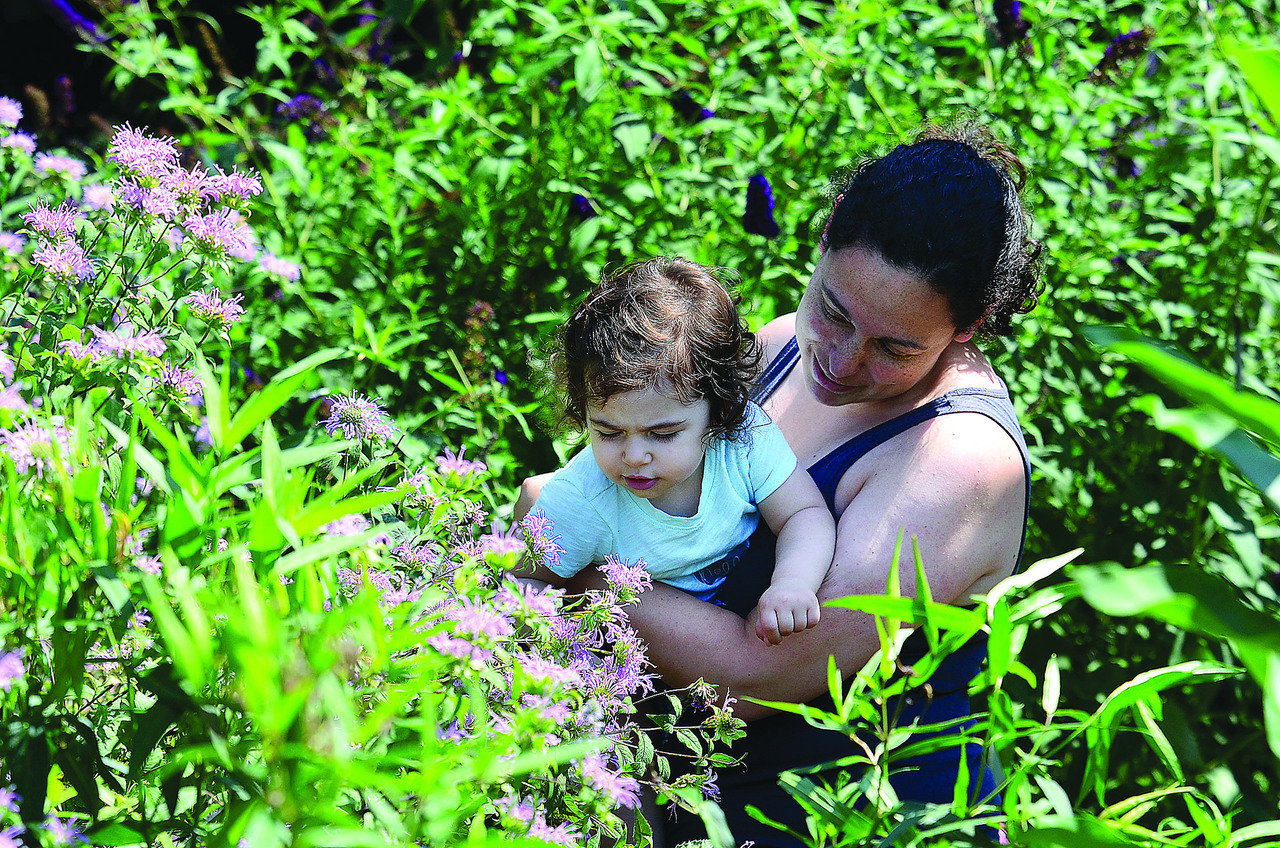Pollinator Discovery Garden in full bloom
New garden at the Audubon Nature Center and Aquarium provides a gathering space for all pollinators
Whether due to pesticide use or other natural and man-made factors, it's no secret that pollinators are in crisis. The problem has become so concerning, that the state of Rhode Island even …
This item is available in full to subscribers.
Please log in to continue |
Register to post eventsIf you'd like to post an event to our calendar, you can create a free account by clicking here. Note that free accounts do not have access to our subscriber-only content. |
Day pass subscribers
Are you a day pass subscriber who needs to log in? Click here to continue.
Pollinator Discovery Garden in full bloom
New garden at the Audubon Nature Center and Aquarium provides a gathering space for all pollinators
Whether due to pesticide use or other natural and man-made factors, it's no secret that pollinators are in crisis. The problem has become so concerning, that the state of Rhode Island even established a Pollinator Working Group in January of 2016. Under the auspices of the Department of Environmental Management, the Working Group is tasked with making recommendations with regard to maintaining and enhancing pollinator health in the state.
The Audubon Society Of RI is part of this group, but according to Executive Director Larry Taft, they felt they could do more.
"The refuges were already doing a lot behind the scenes," said Mr. Taft, "but about two years ago we thought we ought to address the pollinator crisis in some very specific ways."
Not just honeybees
Everyone knows that European Honeybees are master pollinators, critical to the process of plant fertilization — and most know that butterflies are as well. But did you know that the vast group of insect pollinators also includes ants, wasps, bumblebees and carpenter bees, hoverflies, mosquitoes, some beetles, and even moths?
"They are all valid pollinators," said Mr. Taft. "We wanted to do something that would let people know the importance of all pollinators and to give them ideas for how they can support them."
It took a village
So Audubon reached out to the Vivian Palmieri foundation, a Jamestown foundation that provides funds for the development and preservation of roses. Though the Audubon wanted to establish a native pollinator garden, not a rose garden, they were happily surprised to find that the foundation was very supportive.
Mr. Taft next contacted renowned garden designer John Gwynne of Little Compton, who volunteered his time and taken to design the space. Audubon Board Member and Master Gardener Terry Meyer led Audubon staff, members of the Bristol Garden Club, Master Gardeners and other volunteers through phase one of the planting process in 2018. Phase to, just recently completed, included the addition of a water feature.
Now, thousands of blooming bee balm, monarda, azaleas, lilies, butterfly bush, three kinds of milkweeds, and many other flowering plants are attracting dancing butterflies and hundreds of bees of at least a dozen varieties. A new pond and waterfall have been added to the garden, orchard, pergola and pavilion. There is even and a unique pollinator nesting structure which Audubon calls “Bug-ingham Palace.”
All of these elements combine to create an educational pollinator discovery garden. It provides food, water, shelter and nesting habitat for innumerable species of native wildlife. The new garden welcomes Audubon members and visitors to the property and it also provides pollinator habitat for summer camp exploration, gardening programs and more.
The garden is a tangible, multi-layered response, from advocacy to education and action, to the pollinator crisis.
“The takeaway message is that pollinators are critical for the local landscape,” said Mr. Taft. “We can all help local wildlife and native plants that may be in trouble by building a pollinator garden in our own backyards.”






